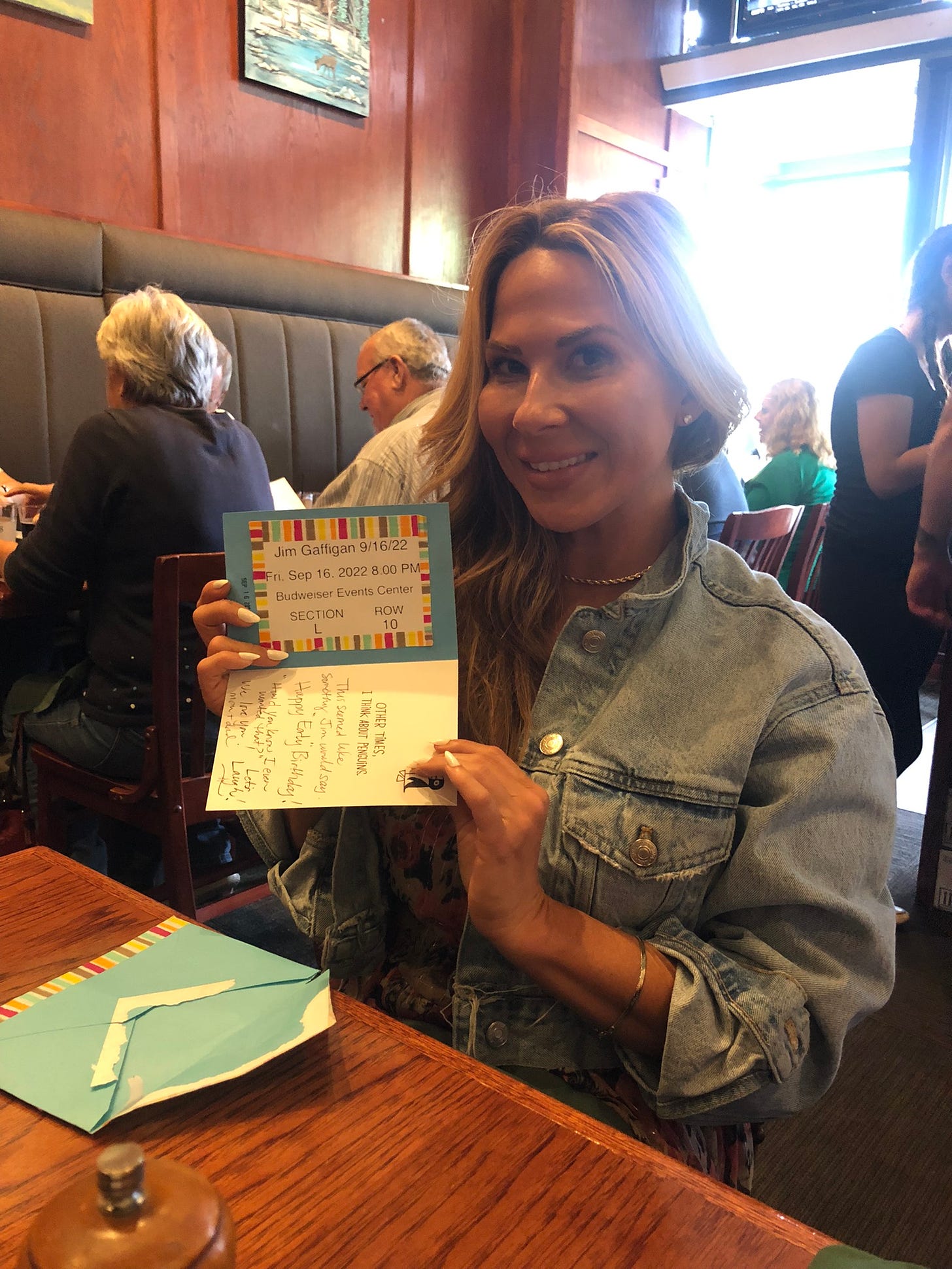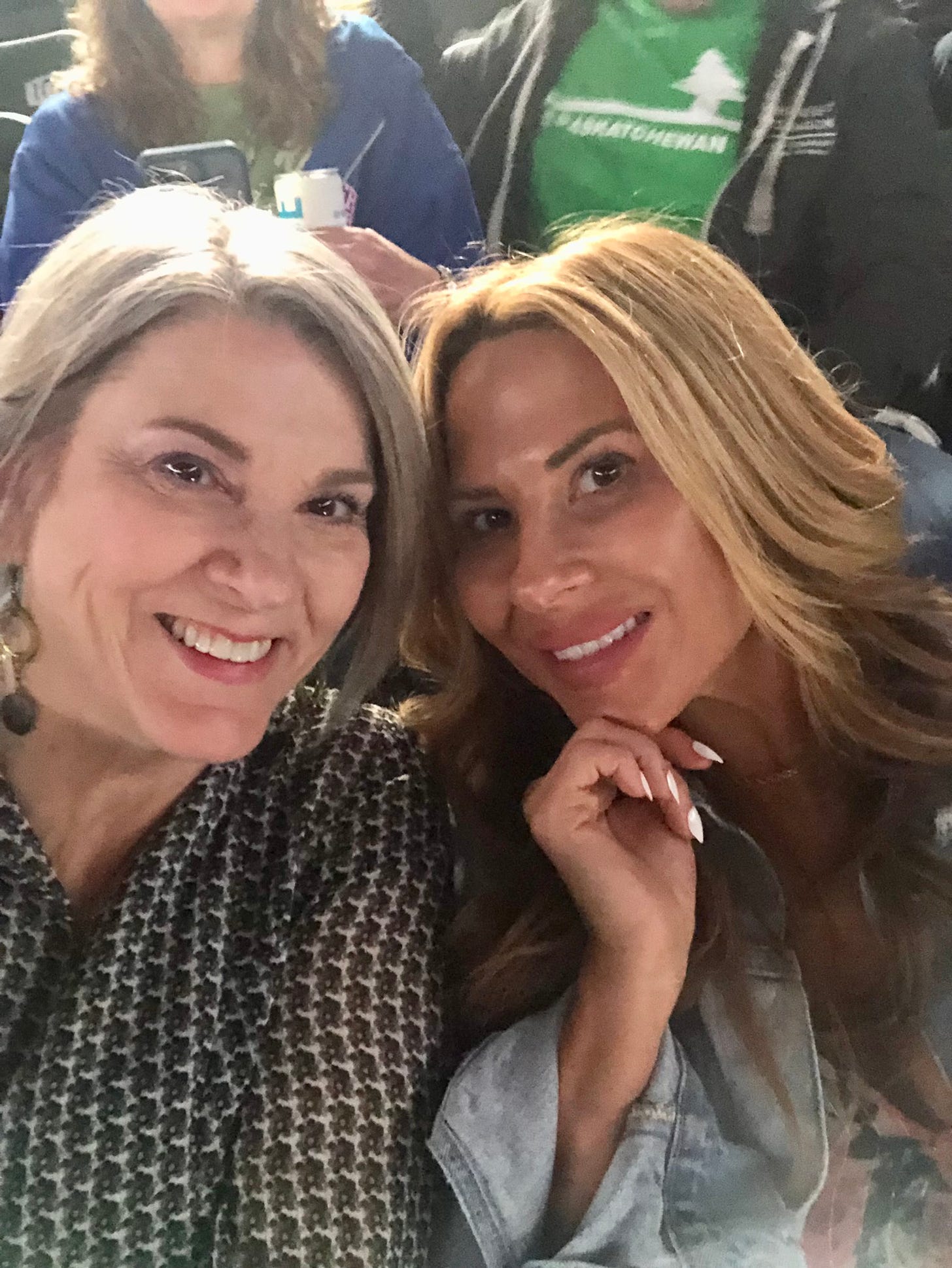I want to share a little story with you from last week.
A friend reached out asking if I had any resources to share, or words of advice, for a dear friend of hers who was going through grief after a devastating loss. She explained that her friend had never identified as a writer but was beginning to feel the nudge to write as a way of facing all she is experiencing.
“I really want her to be surrounded by people who value the deep work she is doing,” my friend said. “She’s fed up with people asking her when she is going back to work as she feels that writing IS her work at the moment.”
I sent along my condolences and shared some thoughts and encouragement. I sent links to my Write 444 teaching videos and PDFs and a recommendation to pick up the book, Expressive Writing: Words That Heal by Pennebaker and Evans, as a possible starting point of support.
But in rereading my email, I noticed I also wrote this:
“I never really identified as a writer -I was an actor - but writing saves me again and again. “
I reread those words and took a deep, full-bodied breath of recognition.
Writing saves me again and again.
The practice of writing s a gift in and of itself. It can be nothing short of liberating.
You don’t have to call yourself a writer to write.
You don’t have to prove anything to anyone to write.
You don’t have to publish or have letters behind your name to write.
You don’t have to have any particular goal in mind at all to write.
Sometimes we write to sort it all out.
Sometimes we write to explore what we are feeling.
Sometimes we write because there is no other way through it.
Sometimes we write to feel less alone.
Sometimes we write to be able to put down a burden.
But ultimately, I think, we write to understand.
We write to heal.
At the end of the book, Pennebaker says,
“…try to see your writing as a practice, much like a yoga or meditation practice, or like regularly going to the gym. Use your writing to reframe experiences, write about events from a perspective of compassion and empathy, write about everyday events with great attention to detail and a spirit of mindfulness, and write your appreciation and gratitude for what many may call the little things — things we know are the only things needful.”
Allowing ourselves to express what we are feeling through our writing is a practice we can cultivate. It is empowering, healing, comforting, confronting, and clarifying. Ultimately writing is liberating.
Your writing can save you again and again. Mine certainly does.
Write on, friends.
Please reach out to me if there is any way I can support you in creating a writing practice. Don’t know where to begin? You could start here.
3 THINGS WORTH SHARING:
Although I haven’t read it yet, How To Do Nothing: Resisting The Attention Economy by Jennifer Odell is on my “ to read” list. Here’s a thoughtful op-ed. If you prefer to watch and listen, check out this Google Talk. “How To Do Nothing is for those who need a playground of thought to exercise and experiment with how to cultivate their attention with care.”- Paul Swanson
A fascinating “walk to work” from a fascinating human. What can we learn from Australian filmmaker, professor, and backyard adventurer, Beau Miles? I am now obsessed with his videos. Prefer to read about his adventures? He just released The Backyard Adventurer by Beau Miles.
PHOTO OF LIFETIME (Science Explorist) West Texas storm chaser Laura Rowe captured the picture of a lifetime. You won’t be disappointed.
LASTLY:
We surprised our daughter Meg with tickets to see Jim Gaffigan. We spent half of the evening doubled over in laughter. We needed to laugh again… with Gaffigan. (Couldn’t help myself.)
Take good care of yourself and find some time to laugh! xoxo Mary







I loved this.. the beautiful picture of you and your mini you.. added to the delight!
Big hugs!🥰
Mary, this was perfect for my first read this morning! Sometimes I write to understand how alive I am...
Robert